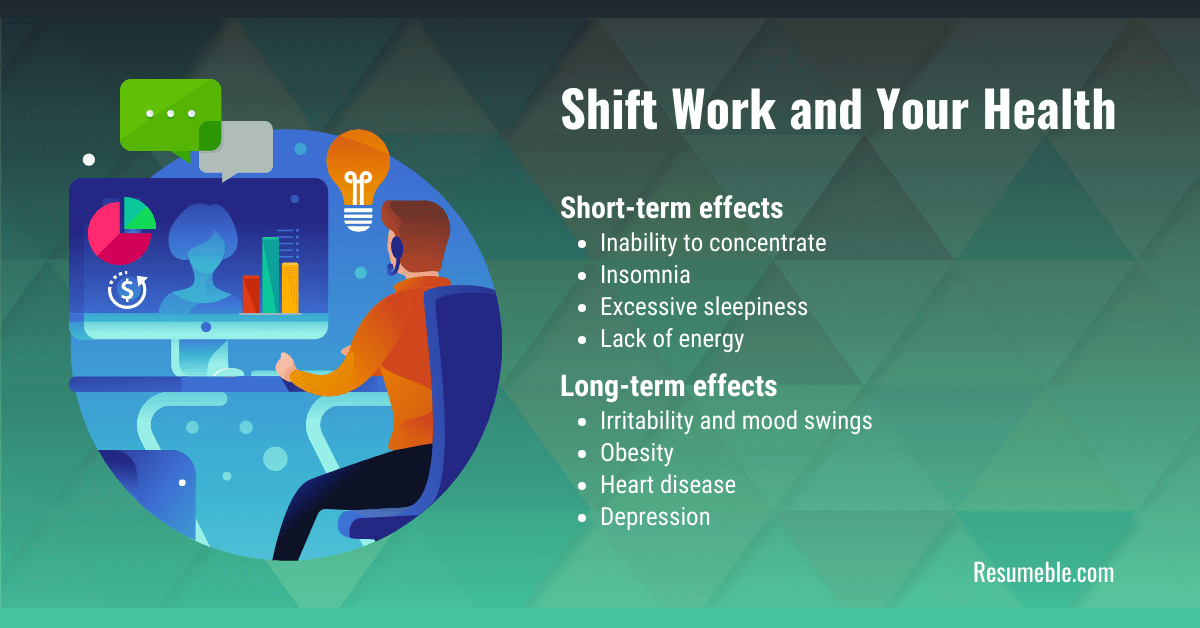Shift work is defined as work performed outside regular daytime hours from 7:00 am to 6:00 pm. This type of work arrangement can be found in many industries, including manufacturing, healthcare, customer service, information technology, protective services, and transportation, to name a few. If you’re in this type of job, you’ve probably noticed that you struggle to get sufficient and quality sleep, which can have a negative impact on your health. It is therefore within your right to ask your employer, “How many hours can I legally work in a day?”
Shift Work and Your Health

In the US, approximately 15% of full-time employees work shift jobs, according to the Bureau of Labor and Statistics. Of this number, around 25 to 30% experience issues that relate to overworking and lack of sleep, including those that affect performance, physical and mental well-being, and personal safety.
The main reason for these issues is that shift work disrupts the body’s normal biological functions, particularly the circadian rhythm, the internal body clock that syncs with daytime and nighttime. Since circadian rhythm regulates many of the body’s functions, including sleep, appetite, emotions, physical form, and cognitive thinking, its disturbance can lead to a lot of negative effects on health, both in the short and long term.
Short-Term Effects
- Inability to concentrate
- Insomnia
- Excessive sleepiness
- Lack of energy
Long-Term Effects
- Irritability and mood swings
- Obesity
- Heart disease
- Depression
As shift work has a direct impact on your health and wellbeing, it is important to minimize the negative impacts of shift work and long work hours as best you can, and it all starts by knowing your rights as a shift work employee.
Is It Legal to Work Over 12 Hours a Day?
In the USA, employees who are 16 or older can be required to work 12-hour shifts. This is according to the Fair Labor Standards Act (FLSA). However, the act does not state the number of hours that employees can work in a day, nor does it require employers to provide breaks or meal breaks for employees. Therefore, an employer is legally allowed to make you work 12 hours straight without breaks. However, the act requires that you be paid for all the hours rendered.
That said, as the FLSA is a federal law, its application can differ by state. To know whether your employer can make you work 12-hour days under state law, consult your local state labor department.
Is It Legal to Work 16 Hours a Day?
As mentioned, the FLSA doesn’t set a limit on how many hours a day your employer can make you work. However, it does require employers to provide overtime pay for hours exceeding the standard eight hours that employees work in a day.
It’s also worth noting that employers are only compelled to provide overtime pay if your workweek exceeds 40 hours. This means that if you work fewer than 40 hours a week, you won’t be entitled to overtime, as per FLSA directives.
Tips to Help You Rest Better
Many of the negative impacts of shiftwork and long work hours can be reduced by taking steps to improve your sleep quality. Here are five tips to help you do just that.
- Create a quiet sleeping space
Daytime is a busy time for most people, and there can be all sorts of noise coming from both outside and inside your home that can disturb your sleep. You can wear earplugs to block out the noise. Or if you have the budget for it, you can soundproof your bedroom.
- Darken your bedroom
Aside from wearing earplugs, you can also wear a sleep mask to block out light while sleeping. However, if you are uncomfortable with such sleeping accessories, you can keep light out of your room with thick and dark-colored curtains or shades to make it more conducive to restful sleep.
- Don’t skimp on your mattress
A mattress is not something you should be looking to save money on. Sleep is important to your health, and the best way to achieve sufficient and quality sleep is to have a mattress that provides a high level of support and comfort. Be extremely picky about your choice of mattress, because the right one will leave you feeling refreshed and well-rested when you wake up, regardless of the time of day.
- Avoid caffeinated or alcoholic beverages
While coffee is a great pick-me-up, it’s not a good idea to drink it at the end of your workday as it can interrupt your sleep. As for alcoholic drinks, many people believe these can help with sleep. Although they can induce drowsiness, alcohol is actually disruptive to good sleep, and can actually make you wake up earlier than you should, or even leave you feeling sapped of energy.
- Eat healthily, and exercise regularly
When your body is in tiptop shape, it will be better equipped to fight the negative effects of long work hours. Not only that, but good diet and exercise also promote better sleep.
It Might Be Time to Change Careers
Health is wealth. If your shift work is affecting you, perhaps it’s time for a change of scenery. Work with us on your resume for that next job.
